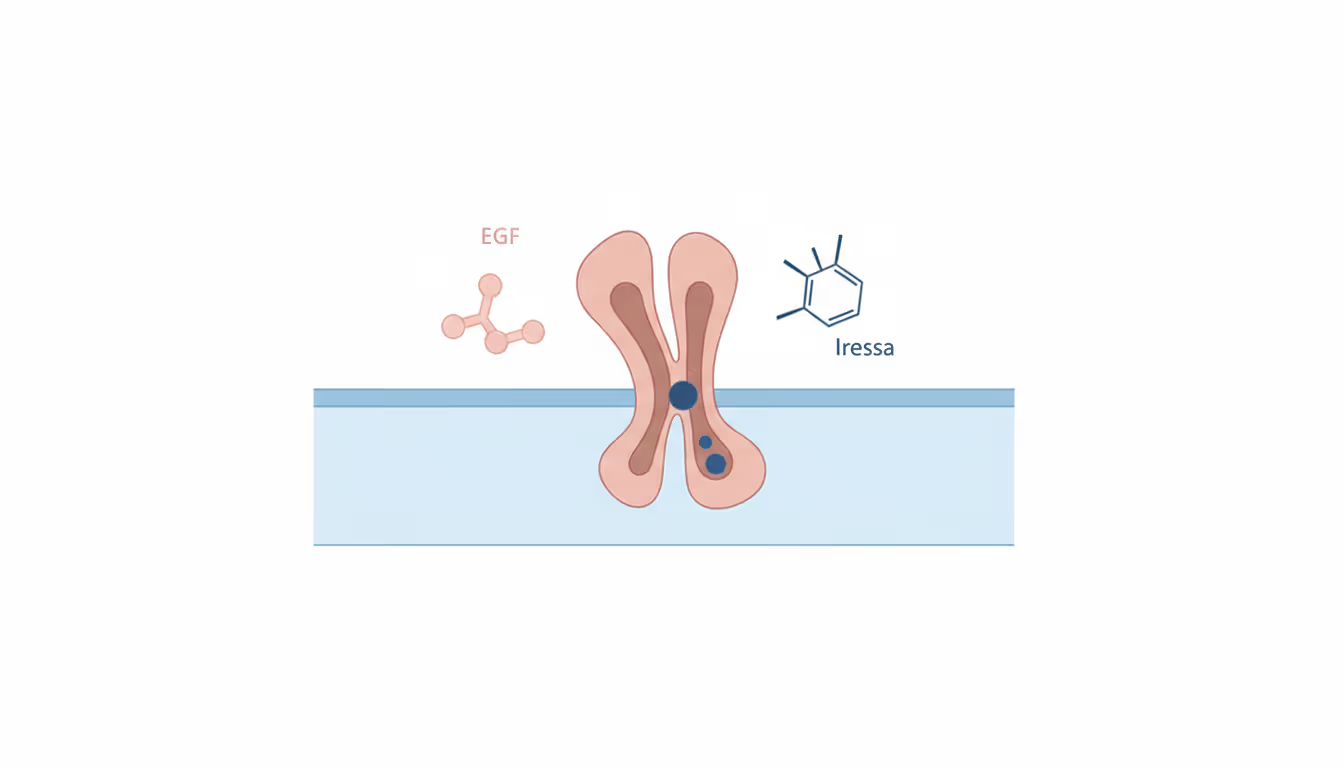
EGFR, or the epidermal growth factor receptor, is a protein located on cell surfaces that binds with epidermal growth factor (EGF). This binding activates the enzyme kinase, initiating a series of reactions that promote cell growth and multiplication. In many cancer cells, EGFR is present in unusually high amounts, leading to excessive cell division when EGF is present. The drug Iressa works by attaching to EGFR, preventing EGF from binding and thus halting cell division. The gene responsible for EGFR is situated on chromosome 7p12.3-p12.1. The EGFR molecule comprises three parts: one that extends outside the cell and serves as the binding site for EGF, another embedded in the cell membrane, and a third that protrudes into the cell's interior. EGFR functions as a kinase, adding phosphate groups to tyrosine residues in proteins. It is also referred to as ErbB1, ErbB, the oncogene ErbB, and HER1.




